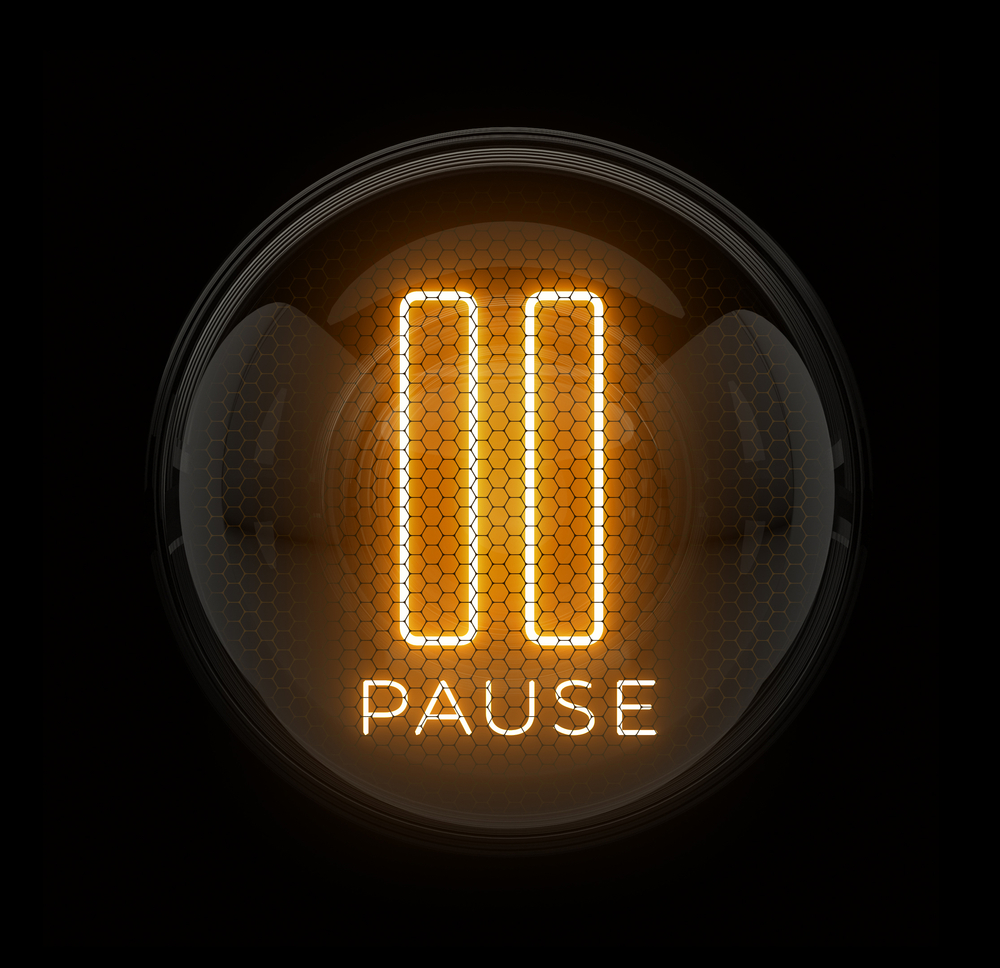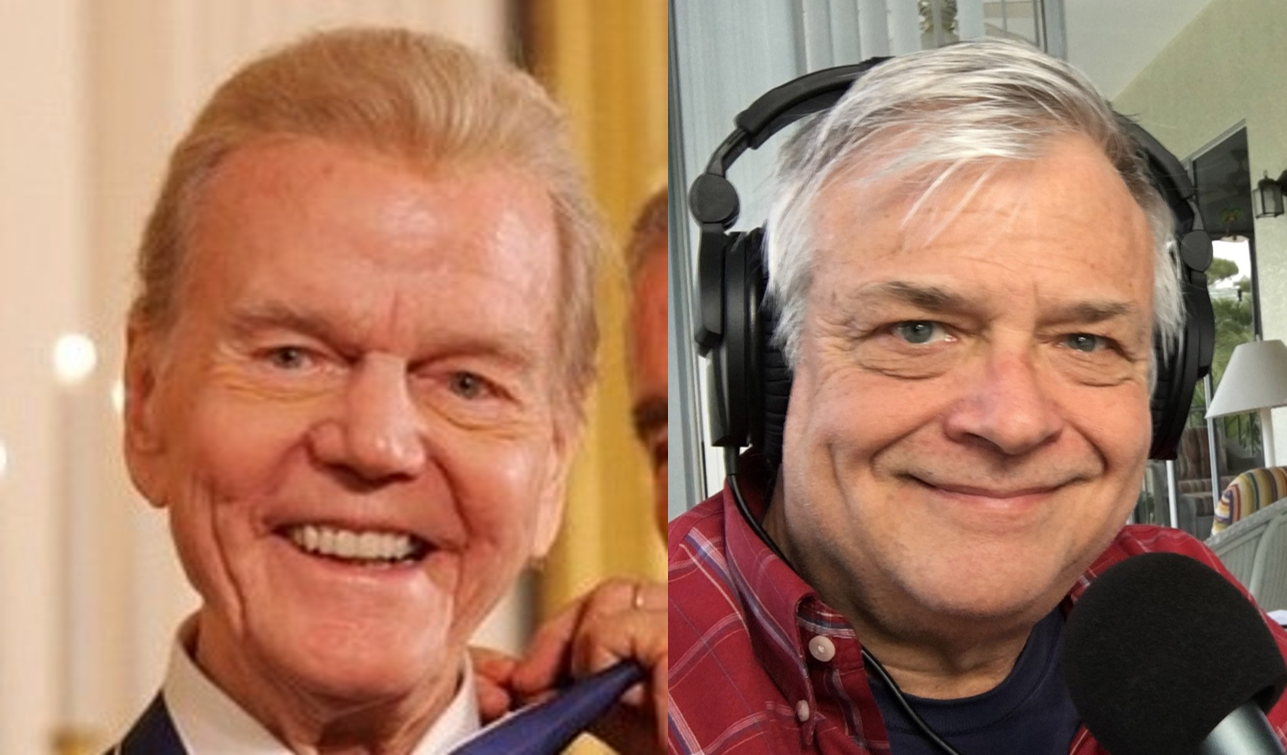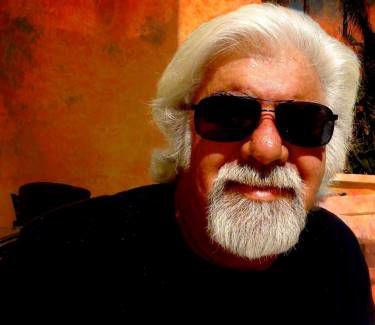
One of my very first clients was a successful medium market rock station – known as an AOR (Album Oriented Rock) back in the early 80’s.
I was actually hired by corporate, so when I flew into the market, it was the first time we’d met. Ahead of my visit, we had done a rushed introductory phone call. So my get-together with him shortly after stepping off the plane marked the beginning of what became a successful 5+ year relationship.
But it did not start especially well. I was an upbeat, caffeinated first-time consultant, eager to make my mark. He was a tired, PD-morning guy not especially enamored with the idea of an unknown like myself advising him on everything.
But for me, the biggest challenge was that he was a really quiet guy. You’ve heard of Type Bs? This guy was B³ – to the third power. He thrived on dead air and what a former instructor of mine called “pregnant pauses.”
He seemed to thrive on these moments of nothingness. I, on the other hand, found them awkward. And I found myself filling the void – talking about anything to simply not allow dead air to permeate our conversation.
The end result was no chemistry between us and me learning very little about the station, the people, and how I could help and be of service.
And a couple months after that first meeting, it finally dawned on me what I was doing wrong. I learned back in my early journalism classes that the best way to get more out of an interview was to go silent after a response. People have a tendency to nervously fill the space. It’s often the moment when you learn the most interesting things.
When I tried this “silent treatment” on this programmer, it almost always worked. I’d ask him a question, I’d get the minimal response. And then I’d wait – sometimes 20 seconds or so, if necessary. And then he would actually begin to converse. By giving him a little breathing room and not pressing him, he became more comfortable with me. And we both became comfortable in the mutual silence.
The value of pressing “pause.” 
It turns out some of the smartest leaders use this tried-and-true technique. Inc.’s Justin Bariso recently wrote a story highlighting big-time corporate leaders including Jeff Bezos and Tim Cook. Its subtitle – “The rule of awkward silence has always been valuable. But in a world of instant gratification, it’s more useful than ever” – says it all.
We continue to put emphasis on content delivery at high speeds. Everything – podcasts, videos, morning shows bits – tends to be shorter. We emphasize payoffs – get right to the content, hit the punchline, keep it moving. And that’s why this technique is so striking, and perhaps even more effective given that we’re moving at high rates of speed.
“Dead air” is simply not acceptable. We’re taught on Day One in radio that even momentary lapses aren’t desirable. And the “PPM Rules” dictate there’s benefit to constant sound in maximizing meter credit.

That’s why on-air personalities who perfected the pause often made bigger impact with those programmed silences.
Two of the very best were Paul Harvey and Steve Dahl, both of whom had you hanging on their every word. Each understood that pressing “pause” is attention-getting.
Interestingly, Bariso writes the story from the point of view of executives being interviewed – how to use pauses to gather thoughts before firing off a response. And the technique works well in that context.
But it also produces results when you are conducting the interview, whether it’s talking to a guest or a job applicant. A little breathing room almost always leads to more substantive responses. It’s amazing what people will say when you provide an extended pause.
It works in focus groups, too. Sometimes, you ask a question of a room, only to be met with silence. Rather than calling on people, a pause stimulates someone in the group to step up. And before you know it, you’re moderating a conversation.
Bariso lists a series of benefits that a little awkward silence brings to the discourse, among them, muting the outside world and getting more thoughtful answers. But I think the main advantage may be in providing you with the room to “say what you mean, and mean what you say.” Despite the ease in which to communicate, somehow people feel misunderstood, misquoted, or my favorite, “taken out of context.” A pause in the action can provide that momentary reset.
By the way, it works in “conversations” you’re having via text, in a messenger app, and in email, too. That tendency to instantly respond is what typically gets us in trouble. Taking a breath helps us “hear” what the other person (or people) are saying. And it gives us the opportunity to actually construct a response that’s meaningful, clear, and relevant.
In a world where everthing is sped up, from videos to baseball, there is benefit to not just slowing it down, but pressing “pause.”![]()
One of the best hockey players of all time starred with the Detroit Red Wings. Gordie Howe was “Mr. Hockey” and played the game for decades. While he was spectacular, even flashy player on the ice, his personal demeanor was always understated, calm, and collected.
Recently, I ran across this quote from #9:
Gordie Howe: “I always tell kids, you have two eyes and one mouth. Keep two open and one closed. You never learn anything if you’re the one talking.”#RedWings #LGRW pic.twitter.com/Qv5nXiLNXn
— The Hockey Samurai 侍 (@hockey_samurai) July 30, 2022
 The late, great Nick Michaels was a talker. On a host of topics, Nick had an opinion. In fact, you might say he was opinionated, with a smart, pointed observation about politics, pop culture, people, and of course, music.
The late, great Nick Michaels was a talker. On a host of topics, Nick had an opinion. In fact, you might say he was opinionated, with a smart, pointed observation about politics, pop culture, people, and of course, music.
When you got him going about radio, Nick had a memorable way of describing how to best utilize the medium. If you were lucky enough to converse with Nick, chances are he’d drop it on you:
“In the overcommunicated world, the whisper becomes a scream.”
There’s a value and a purpose to just pressing “pause.”
- Media And Technology In 2025: Believe It Or Not! - April 18, 2025
- In Radio, You Just Never Know - April 17, 2025
- The Secret To Making A Great Podcast (And Great Radio) - April 16, 2025




Great stuff. I immediately thought of Larry Lujack, who used silence as a weapon in the dragstrip-ad world of 70s Top 40. It forced you to focus.
I enjoy these quotes, and they are very true of my life…
“But there is greater comfort in the substance of silence than in the answer to a question.”
― Thomas Merton
“Solitude is a way to defend the spirit against the murderous din of our materialism.”
― Thomas Merton
Silence is the strength of our interior life . . . if we fill our lives with silence, then we will live in hope.
-Thomas Merton
…all men need enough silence and solitude in their lives to enable the deep inner voice of their own true self to be heard at least occasionally.
-Thomas Merton
and these:
“Well-timed silence hath more eloquence than speech.” ~ Martin Farquhar Tupper
“Never miss a good chance to shut up.” ~ Will Rogers
Seriously, I learned this when I was a litigator. When a witness is being reticent, just let your silence encourage him to expand on that incomplete answer. It works.
Fred. I wished I knew this topic was coming on today August 2nd which BTW, is Z100’s 39th birthday in NYC! You pointed out two of the masters of the pause as being Paul Harvey and Steve Dahl. I am proud to remind your readers that I am the ONLY person who recorded (video & audio) what turned out to be Paul Harvey’s final speech to the radio industry in March of 2003 at the R&R Talk Radio Seminar in Marina del Rey (LA). It begins with a great explanation of his use of “the pause.” It’s a must-see video and it’s easy to access on YouTube. Just search: Paul Harvey Keynote. It’s the “missing 18 minutes” you need to experience!
I would love to see that, Art. Is there an available link?
Thank you for that Art. It was a great piece that I plan to share with my staff.
Sorry about the delay in getting back to you, Art. You’d better dust off that Vin Scully tribute.
Sweet —–Sound—-Of a pause.
Exactly.